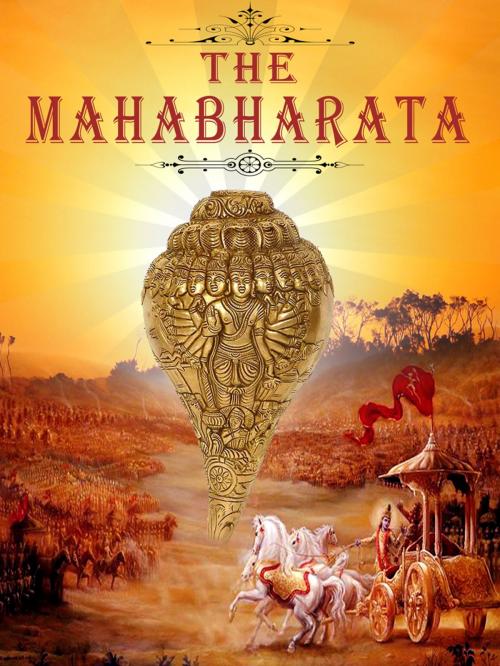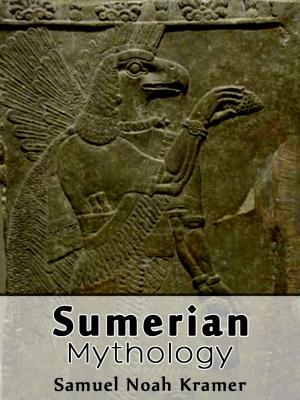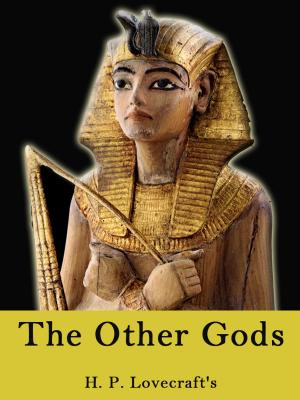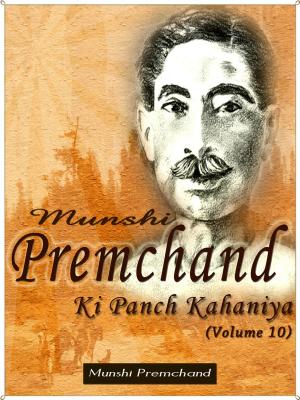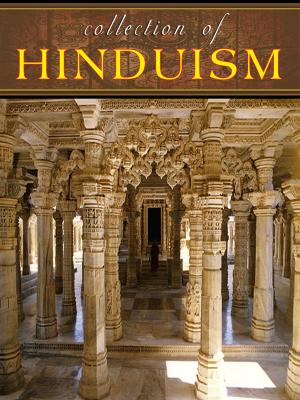The Mahabharata
Complete Series Book
Nonfiction, Religion & Spirituality, Eastern Religions, Hinduism, Reference, History, Inspiration & Meditation, Spirituality| Author: | Kisari Mohan Ganguli | ISBN: | 9781623941673 |
| Publisher: | AppsPublisher | Publication: | December 9, 2012 |
| Imprint: | Language: | English |
| Author: | Kisari Mohan Ganguli |
| ISBN: | 9781623941673 |
| Publisher: | AppsPublisher |
| Publication: | December 9, 2012 |
| Imprint: | |
| Language: | English |
The Mahabharata
Kisari Mohan Ganguli, tr.
The Mahabharata complete series of all Parva in this book. They are :-
1: Adi Parva
2: Sabha Parva
3: Vana Parva
4: Virata Parva
5: Udyoga Parva
6: Bhishma Parva
7: Drona Parva
8: Karna Parva
9: Shalya Parva
10: Sauptika Parva
11: Stri Parva
12: Santi Parva
13: Anusasana Parva
14: Aswamedha Parva
15: Asramavasika Parva
16: Mausala Parva
17: Mahaprasthanika Parva
18: Svargarohanika Parva
Om! Having bowed down to Narayana and Nara, the most exalted male being, and also to the goddess Saraswati, must the word Jaya be uttered.
It is of immense importance to the culture of the Indian subcontinent, and is a major text of Hinduism. Its discussion of human goals (artha or purpose, kama or pleasure, dharma or duty/harmony, and moksha or liberation) takes place in a long-standing tradition, attempting to explain the relationship of the individual to society and the world (the nature of the 'Self') and the workings of karma.
The object of a translator should ever be to hold the mirror upto his author. That being so, his chief duty is to represent so far as practicable the manner in which his author's ideas have been expressed, retaining if possible at the sacrifice of idiom and taste all the peculiarities of his author's imagery and of language as well. In regard to translations from the Sanskrit, nothing is easier than to dish up Hindu ideas, so as to make them agreeable to English taste. But the endeavour of the present translator has been to give in the following pages as literal a rendering as possible of the great work of Vyasa. To the purely English reader there is much in the following pages that will strike as ridiculous. Those unacquainted with any language but their own are generally very exclusive in matters of taste. Having no knowledge of models other than what they meet with in their own tongue, the standard they have formed of purity and taste in composition must necessarily be a narrow one. The translator, however, would ill-discharge his duty, if for the sake of avoiding ridicule, he sacrificed fidelity to the original. He must represent his author as he is, not as he should be to please the narrow taste of those entirely unacquainted with him.
Ugrasrava, the son of Lomaharshana, surnamed Sauti, well-versed in the Puranas, bending with humility, one day approached the great sages of rigid vows, sitting at their ease, who had attended the twelve years' sacrifice of Saunaka, surnamed Kulapati, in the forest of Naimisha. Those ascetics, wishing to hear his wonderful narrations, presently began to address him who had thus arrived at that recluse abode of the inhabitants of the forest of Naimisha. Having been entertained with due respect by those holy men, he saluted those Munis (sages) with joined palms, even all of them, and inquired about the progress of their asceticism. Then all the ascetics being again seated, the son of Lomaharshana humbly occupied the seat that was assigned to him. Seeing that he was comfortably seated, and recovered from fatigue, one of the Rishis beginning the conversation, asked him, 'Whence comest thou, O lotus-eyed Sauti, and where hast thou spent the time? Tell me, who ask thee, in detail.'
The Mahabharata
Kisari Mohan Ganguli, tr.
The Mahabharata complete series of all Parva in this book. They are :-
1: Adi Parva
2: Sabha Parva
3: Vana Parva
4: Virata Parva
5: Udyoga Parva
6: Bhishma Parva
7: Drona Parva
8: Karna Parva
9: Shalya Parva
10: Sauptika Parva
11: Stri Parva
12: Santi Parva
13: Anusasana Parva
14: Aswamedha Parva
15: Asramavasika Parva
16: Mausala Parva
17: Mahaprasthanika Parva
18: Svargarohanika Parva
Om! Having bowed down to Narayana and Nara, the most exalted male being, and also to the goddess Saraswati, must the word Jaya be uttered.
It is of immense importance to the culture of the Indian subcontinent, and is a major text of Hinduism. Its discussion of human goals (artha or purpose, kama or pleasure, dharma or duty/harmony, and moksha or liberation) takes place in a long-standing tradition, attempting to explain the relationship of the individual to society and the world (the nature of the 'Self') and the workings of karma.
The object of a translator should ever be to hold the mirror upto his author. That being so, his chief duty is to represent so far as practicable the manner in which his author's ideas have been expressed, retaining if possible at the sacrifice of idiom and taste all the peculiarities of his author's imagery and of language as well. In regard to translations from the Sanskrit, nothing is easier than to dish up Hindu ideas, so as to make them agreeable to English taste. But the endeavour of the present translator has been to give in the following pages as literal a rendering as possible of the great work of Vyasa. To the purely English reader there is much in the following pages that will strike as ridiculous. Those unacquainted with any language but their own are generally very exclusive in matters of taste. Having no knowledge of models other than what they meet with in their own tongue, the standard they have formed of purity and taste in composition must necessarily be a narrow one. The translator, however, would ill-discharge his duty, if for the sake of avoiding ridicule, he sacrificed fidelity to the original. He must represent his author as he is, not as he should be to please the narrow taste of those entirely unacquainted with him.
Ugrasrava, the son of Lomaharshana, surnamed Sauti, well-versed in the Puranas, bending with humility, one day approached the great sages of rigid vows, sitting at their ease, who had attended the twelve years' sacrifice of Saunaka, surnamed Kulapati, in the forest of Naimisha. Those ascetics, wishing to hear his wonderful narrations, presently began to address him who had thus arrived at that recluse abode of the inhabitants of the forest of Naimisha. Having been entertained with due respect by those holy men, he saluted those Munis (sages) with joined palms, even all of them, and inquired about the progress of their asceticism. Then all the ascetics being again seated, the son of Lomaharshana humbly occupied the seat that was assigned to him. Seeing that he was comfortably seated, and recovered from fatigue, one of the Rishis beginning the conversation, asked him, 'Whence comest thou, O lotus-eyed Sauti, and where hast thou spent the time? Tell me, who ask thee, in detail.'
